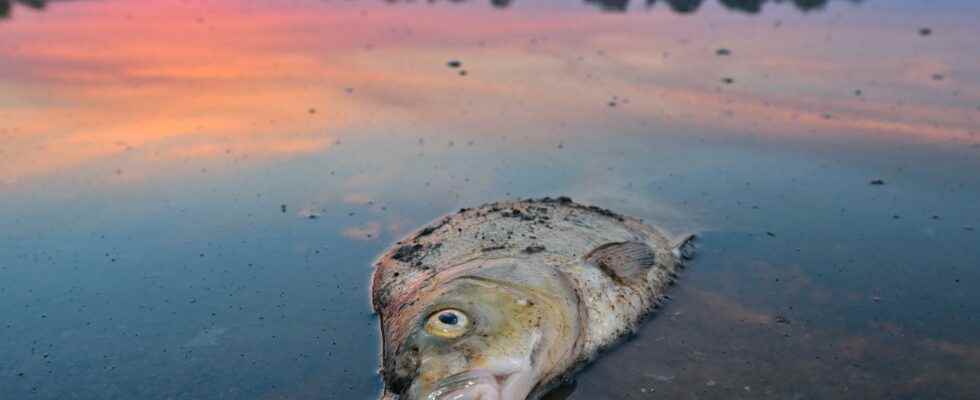Published: Just now
full screen
Next
Hundreds of tons of dead fish, shellfish, mussels and algae are floating in the Oder River at the German-Polish border.
1 of 2 Photo: Patrick Pleul/AP/TT
An extensive fish kill has hit the Oder river between Poland and Germany this summer. The World Wide Fund for Nature calls it a serious ecological disaster and calls on all Baltic Sea governments to act.
It was at the beginning of June this year that it was first discovered that dead fish, shells, mussels and other species were floating around in the Oder River. In recent weeks, more than 100 tons of dead fish have floated to the surface of the river and been picked along the shores.
According to the World Wide Fund for Nature (WWF), it has not been determined exactly what is behind the fish deaths, but the release of pollutants combined with unusually low water levels and high water temperatures are believed to have contributed.
– The early reports indicating excessive levels of mercury turned out to be misleading, but samples taken have found the algae prymnesium parvum – sometimes called golden algae due to its color – which is an indication that there would be excessive salinity in the river , says Johanna Fox, head of the international Baltic Sea program at WWF.
Common concern
The algae lives mainly in brackish water but can find its way into river systems when the salinity is above a certain level and release substances that are toxic to fish and shellfish.
– High salinity levels can be caused by waste water from industries or mining operations, but the root cause is not yet known, says Johanna Fox.
WWF criticizes Poland for not having sufficient monitoring and taking systematic samples of the water quality. Since the Oder flows into the Baltic Sea, the environmental disaster is now a common concern for the surrounding countries.
– Considering the scale of this disaster and its effects, it should have received more attention in the Swedish media. This is a strong warning signal that the ecosystem in our common sea, the Baltic Sea, may be affected, says Johanna Fox.
Fragile ecosystem
WWF has written an open letter to all Baltic Sea governments calling for an action plan on how to handle the situation in the Oder and prevent similar disasters from happening in the future.
– We urge the governments to act within the framework of the Helsinki Convention, Helcom, which is a regional environmental convention with the aim of protecting the Baltic Sea. The countries collaborate there on how environmental problems such as eutrophication and emissions of substances should be handled. If the Baltic Sea is to be saved, you have to work across national borders, says Johanna Fox and continues:
– We want the Swedish government to raise the issue of the Oder and push for a common response to the disaster we are seeing. We are also calling for an action plan for how the Baltic Sea countries can together manage and counter similar events in the future in terms of information exchange, resources and expertise. This incident shows how fragile our ecosystems are.
